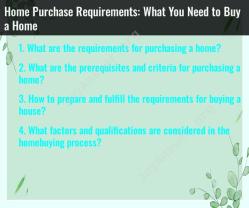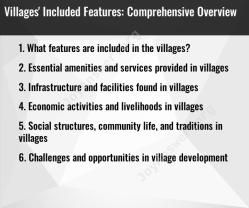Should you pay extra on your mortgage principal?
Paying extra on your mortgage principal can be a smart financial move in many cases, but whether it's worth it depends on your individual financial goals and circumstances. Here are some factors to consider when deciding whether to make extra payments toward your mortgage principal:
Pros of Paying Extra on Your Mortgage Principal:
Interest Savings: Making extra payments reduces the outstanding balance on your mortgage, which means you'll pay less in interest over the life of the loan. This can lead to substantial long-term savings.
Faster Loan Payoff: Extra payments accelerate the payoff of your mortgage. This can help you become debt-free sooner and own your home outright, providing financial security.
Builds Home Equity: As you reduce your mortgage balance, you build home equity more quickly. Home equity can be tapped into for various purposes, such as home improvements, debt consolidation, or emergencies.
Financial Freedom: Eliminating your mortgage debt means you no longer have a monthly mortgage payment, which can free up a significant portion of your budget for other financial goals, such as retirement savings or investments.
Psychological Benefits: Paying off your mortgage early can provide peace of mind and reduce financial stress.
Cons of Paying Extra on Your Mortgage Principal:
Opportunity Cost: Money used to make extra mortgage payments could potentially earn a higher return if invested elsewhere. Consider the potential return on investment (ROI) of other financial opportunities before deciding to prepay your mortgage.
Other Financial Priorities: Before making extra mortgage payments, ensure you have addressed other financial priorities, such as building an emergency fund, paying off high-interest debt, and contributing to retirement accounts.
Prepayment Penalties: Some mortgage agreements have prepayment penalties or restrictions that may offset the benefits of making extra payments. Review your mortgage contract to understand any associated costs.
Tax Implications: In some cases, mortgage interest is tax-deductible, which can reduce your effective interest rate. Consider how making extra payments might affect your tax situation.
When Paying Extra on Your Mortgage Principal Might Be Worth It:
If you have a relatively high interest rate on your mortgage, making extra payments can result in substantial interest savings.
If you want to achieve debt-free homeownership sooner and value the peace of mind that comes with it.
If you have already addressed other financial priorities and have surplus funds available for prepayment.
When It Might Not Be Worth It:
If you have other high-interest debt (e.g., credit card debt) that should be paid off first.
If you have investment opportunities with a higher expected return than your mortgage interest rate.
If you anticipate needing liquidity in the near future and don't want to tie up your funds in home equity.
Ultimately, the decision to pay extra on your mortgage principal should align with your financial goals and risk tolerance. It's advisable to assess your individual circumstances, consider the potential financial benefits, and consult with a financial advisor if needed to make an informed decision.
The Mortgage Principal Dilemma: To Pay Extra or Not? is a difficult question to answer, as it depends on your individual financial situation and goals. There are both pros and cons to making extra mortgage payments.
Pros of making extra mortgage payments:
- Save money on interest: The more money you pay towards your principal, the less interest you will pay over the life of your loan.
- Shorten your loan term: By making extra payments, you can pay off your mortgage faster. This can save you money in interest and allow you to build equity in your home more quickly.
- Build equity faster: Equity is the difference between the value of your home and the amount of money you owe on your mortgage. As you make extra payments, your equity in your home will increase. This can give you financial flexibility and make it easier to refinance your mortgage in the future.
Cons of making extra mortgage payments:
- Less money available for other financial goals: When you make extra mortgage payments, you have less money available for other financial goals, such as saving for retirement or investing.
- Opportunity cost: The opportunity cost of making extra mortgage payments is the return you could have earned on that money if you had invested it instead.
Whether or not to make extra mortgage payments is a personal decision. It is important to weigh the pros and cons carefully and decide what is best for your individual financial situation and goals.
Here are some things to consider when making your decision:
- Your current financial situation: Are you able to afford to make extra mortgage payments without sacrificing other important financial goals?
- Your interest rate: If you have a low interest rate, you may not save as much money by making extra payments.
- Your loan term: If you have a short loan term, you may not have as much time to save money by making extra payments.
- Your financial goals: Do you want to pay off your mortgage early? Do you want to build equity in your home quickly?
If you are still unsure whether or not to make extra mortgage payments, it is a good idea to talk to a financial advisor. They can help you assess your financial situation and goals and make a recommendation that is right for you.













